



Acknowledgments 7
Introduction 9
PART 1: ALTRUISM IN MAN AND BEAST
Chapter 1: Altruism: Birds Do It, Bees Do It, People Do It 19
Chapter 2: Evolution and Ethics 43
Chapter 3: Sterile Castes of Priests and Nuns 69
PART 2: GROWING UP TO BE GOOD
Chapter 4: Why Do People Grow Up to Be Altruists? 99
Chapter 5: Altruism among Thieves 133
PART 3: THE SOCIAL IMPACT OF KINDNESS
Chapter 6: Kindness and Health 161
Chapter 7: Kindness among Strangers 203
Chapter 8: Conformity as Altruism 233
Chapter 9: When Altruism Fails 267
PART 4: KINDNESS AND POLITICS
Chapter 10: Tapping Human Altruism 303
Chapter 11: Saving the World 333
Chapter 12: Where Have All the Villains Gone? 357
Notes 381
Index 407
Acknowledgments
 am grateful for the help received from many people at various stages in the conception, planning, and writing of this book. My editor at Prometheus Books, Linda Regan, influenced the content of the book and provided many helpful and thoughtful comments on the manuscript. My research was aided by the work of the Interlibrary Loan Department at the Portland Public Library, Maine, including Rita Gorham, Eileen MacAdam, and Anne Ball. Schadijah Camp of the Library of Congress helped with illustrations.
am grateful for the help received from many people at various stages in the conception, planning, and writing of this book. My editor at Prometheus Books, Linda Regan, influenced the content of the book and provided many helpful and thoughtful comments on the manuscript. My research was aided by the work of the Interlibrary Loan Department at the Portland Public Library, Maine, including Rita Gorham, Eileen MacAdam, and Anne Ball. Schadijah Camp of the Library of Congress helped with illustrations.
Trudy Callaghan provided informal editorial assistance. I am grateful for her counsel and support. David Barber-Callaghan also helped by providing clever analogies.
I am thankful to many friends and colleagues in research whose important ideas and findings in the evolutionary study of altruism put evolutionary psychology on the intellectual map. Many are, or were, members of the Human Behavior and Evolution Society. I also owe a debt of gratitude to the online community of evolutionary psychologists whose challenging ideas promote intellectual fitness. We all mourn the passing of Linda Mealey, who contributed generously to my previous book, The Science of Romance, during her final illness.
Introduction
 aking the case that people are naturally helpful to others seems a hard sell in a world preoccupied with global terrorism, corporate swindlers, and pedophile priests. Yet, none of these manifestations of evil minimizes the altruistic motive that springs eternal in the human breast. Kindness exists, but it struggles to stay afloat on an ocean of cruelty that is the default condition for organisms competing for existence on this planet.
aking the case that people are naturally helpful to others seems a hard sell in a world preoccupied with global terrorism, corporate swindlers, and pedophile priests. Yet, none of these manifestations of evil minimizes the altruistic motive that springs eternal in the human breast. Kindness exists, but it struggles to stay afloat on an ocean of cruelty that is the default condition for organisms competing for existence on this planet.
This book describes actions rather than philosophies. It is also more concerned with concrete examples of helpful behavior than with the computer models many scholars use to decode them. Altruism is defined as actions that help another individual at some cost to the altruist. The main advantage of this approach is that it allows us to discuss human altruism in terms of the evolutionary ideas that account for altruism in other species.
The biological definition of altruism is sometimes criticized as defining altruism out of existence by implying that apparent acts of selflessness are really only selfishness in disguise. The argument goes that such acts are undertaken to (1) make the altruist feel better, (2) increase the reproductive success of the altruist, or (3) increase the prevalence of genes for altruistic behavior. Yet, altruism is real, in the sense that it is predicated on evolved moral emotions like empathy and shame. Moreover, it is possible for humans and other species to engage in altruistic actions that have no ulterior motive, except whatever pleasure comes from the action itself, and no delayed benefit of any kind. (The only requirement for altruistic tendencies to evolve is that they should generally increase the biological success of individuals expressing them, not that every altruistic act should have a reproductive payoff.)
There is nothing pie-eyed about the case for altruism as an animal adaptation. The simplest, and most prevalent, type is parental care that happens to be well developed in female mammals, some male fishes, and birds of both sexes. Such altruism is easily explained in terms of kin selection, or the promotion of one's genes through reproduction by close relatives. It is predictable, obligatory, and thus not very interesting, except when it fails, as in the case of parents who abuse or abandon their children.
The farther one moves from nuclear families, the more interesting, and more fragile, altruism becomes. Solitary altruists cannot exist in a group of nonaltruists. Altruism is thus a property of groups, or social contexts, as much as it is a property of individuals. Our ancestors survived the uncertainty of hunting large animals by pooling their kill in a prehistoric insurance system that was to the benefit of all. Relying on meat alone, the average solitary hunter might be successful in bringing home a large game animal once a month, which is far too infrequent to enable survival. It makes more sense to share the meat while it is fresh, rather than leaving it to rot in a few days, because sharing entitles the donor to a steady supply of fresh food from other kills.
With some excitement, animal behaviorists discovered a similar form of cooperation among vampire bats. These bats can survive for only a few days if deprived of a blood meal. Sated animals regurgitate food to sustain their famished friends. Such altruism is remarkable among animals that are not close relatives, but it is not automatic, or unconditional. If a bat refuses to share with her hungry friend, she is liable to be kicked out of their shared roost site and may starve. Our human ancestors were similarly protected against cheats by emotions such as anger and indignation that helped keep other members of their community in line. Without such checks and balances, any altruistic relationship among nonrelatives would inevitably collapse as cheats prospered at the expense of cooperators.
Food-sharing altruism promoted survival among our huntergatherer ancestors, but the sense of community of interest clearly did not stop at the cooking fire: it extended to cooperative childcare, medicine, entertainment, and so on. Cooperative behavior and the many psychological adaptations necessary to maintain it did not go away when our ancestors shifted to agricultural food production. In settled communities, people helped each other to survive the uncertainties of agricultural production, with its droughts, fires, damaging storms, and pests.

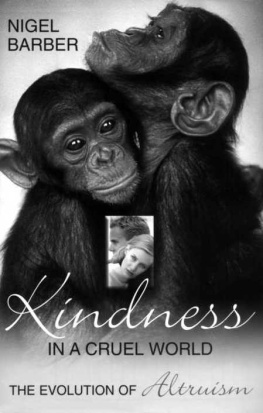
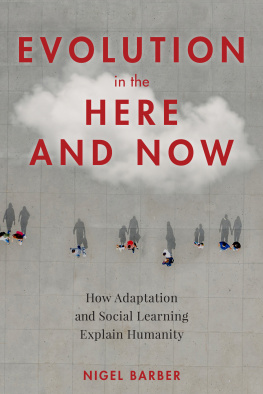


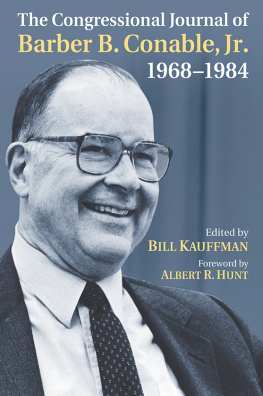
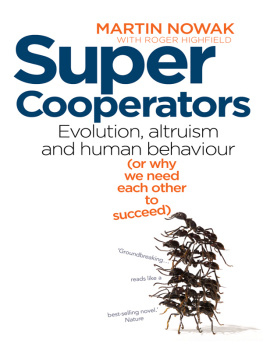
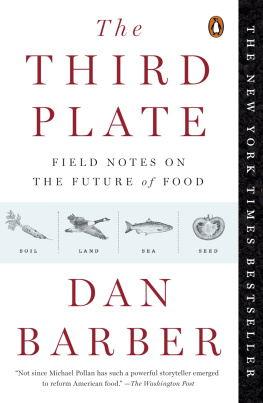
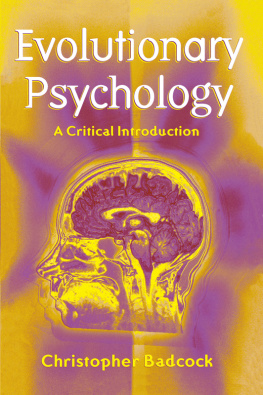
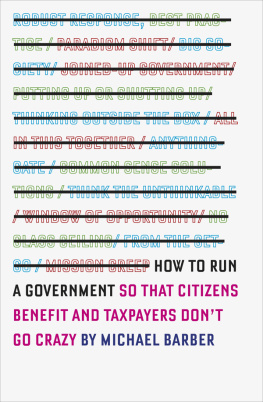
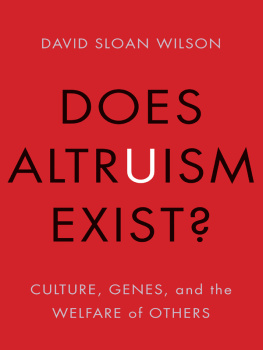
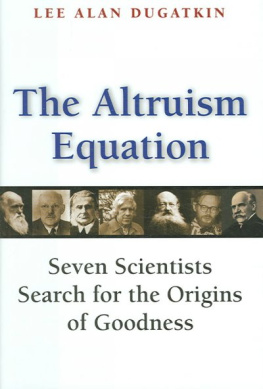










 am grateful for the help received from many people at various stages in the conception, planning, and writing of this book. My editor at Prometheus Books, Linda Regan, influenced the content of the book and provided many helpful and thoughtful comments on the manuscript. My research was aided by the work of the Interlibrary Loan Department at the Portland Public Library, Maine, including Rita Gorham, Eileen MacAdam, and Anne Ball. Schadijah Camp of the Library of Congress helped with illustrations.
am grateful for the help received from many people at various stages in the conception, planning, and writing of this book. My editor at Prometheus Books, Linda Regan, influenced the content of the book and provided many helpful and thoughtful comments on the manuscript. My research was aided by the work of the Interlibrary Loan Department at the Portland Public Library, Maine, including Rita Gorham, Eileen MacAdam, and Anne Ball. Schadijah Camp of the Library of Congress helped with illustrations. aking the case that people are naturally helpful to others seems a hard sell in a world preoccupied with global terrorism, corporate swindlers, and pedophile priests. Yet, none of these manifestations of evil minimizes the altruistic motive that springs eternal in the human breast. Kindness exists, but it struggles to stay afloat on an ocean of cruelty that is the default condition for organisms competing for existence on this planet.
aking the case that people are naturally helpful to others seems a hard sell in a world preoccupied with global terrorism, corporate swindlers, and pedophile priests. Yet, none of these manifestations of evil minimizes the altruistic motive that springs eternal in the human breast. Kindness exists, but it struggles to stay afloat on an ocean of cruelty that is the default condition for organisms competing for existence on this planet.